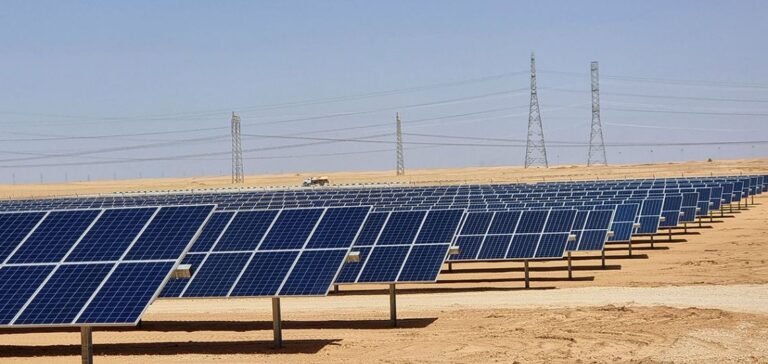The Ivorian energy sector continues to attract significant investments, particularly in solar power. The government is focusing on diversifying its energy mix, aiming for 45% renewable energy by 2030. Currently dominated by natural gas, the country’s electricity production is seeing a rise in photovoltaic energy, supported by private and institutional financing.
A strategic project for Ivorian solar energy
The FERKE SOLAR plant, developed by PFO Energies, a subsidiary of PFO Africa, is under construction on a 70-hectare site in Ferkéssédougou, 230 km north of Bouaké. With a capacity of 52.42 MWc, it will be equipped with 70,000 next-generation photovoltaic panels and will produce approximately 90 GWh of electricity per year, equivalent to the consumption of 370,000 households.
This project marks a significant step forward in the development of solar energy in Côte d’Ivoire, as it will nearly double the country’s current installed solar capacity. It is part of a broader strategy to secure energy supply and reduce dependence on fossil fuels.
Structured financing involving international players
The project, estimated at 41 billion FCFA ($65 million), benefits from structured financing involving international financial institutions. In December 2024, the Emerging Africa Infrastructure Fund (EAIF) of the Private Infrastructure Development Group and the West African Development Bank (BOAD) injected €52 million to support the plant’s construction.
This mobilization of foreign capital reflects the growing interest in the Ivorian renewable energy market. At the same time, other initiatives are developing, such as the 50 MWc solar power plant in Katiola, led by Katiola Solar Power, a subsidiary of JC Mont-Fort. This project, worth $52.69 million, illustrates the increasing role of private international financing in Côte d’Ivoire’s solar sector.
Expected economic and energy impact
Beyond energy issues, the FERKE SOLAR plant also generates local economic opportunities. The construction phase will create over 600 jobs, contributing to regional development. Once operational, the infrastructure will help secure the electrical grid and facilitate more stable energy access for the population.
The rapid expansion of photovoltaic capacity in Côte d’Ivoire demonstrates a commitment to accelerating the integration of renewable energy into the energy mix. Investments in solar infrastructure, combined with diversified financing sources, form a key strategy to meet the country’s growing electricity needs.






















